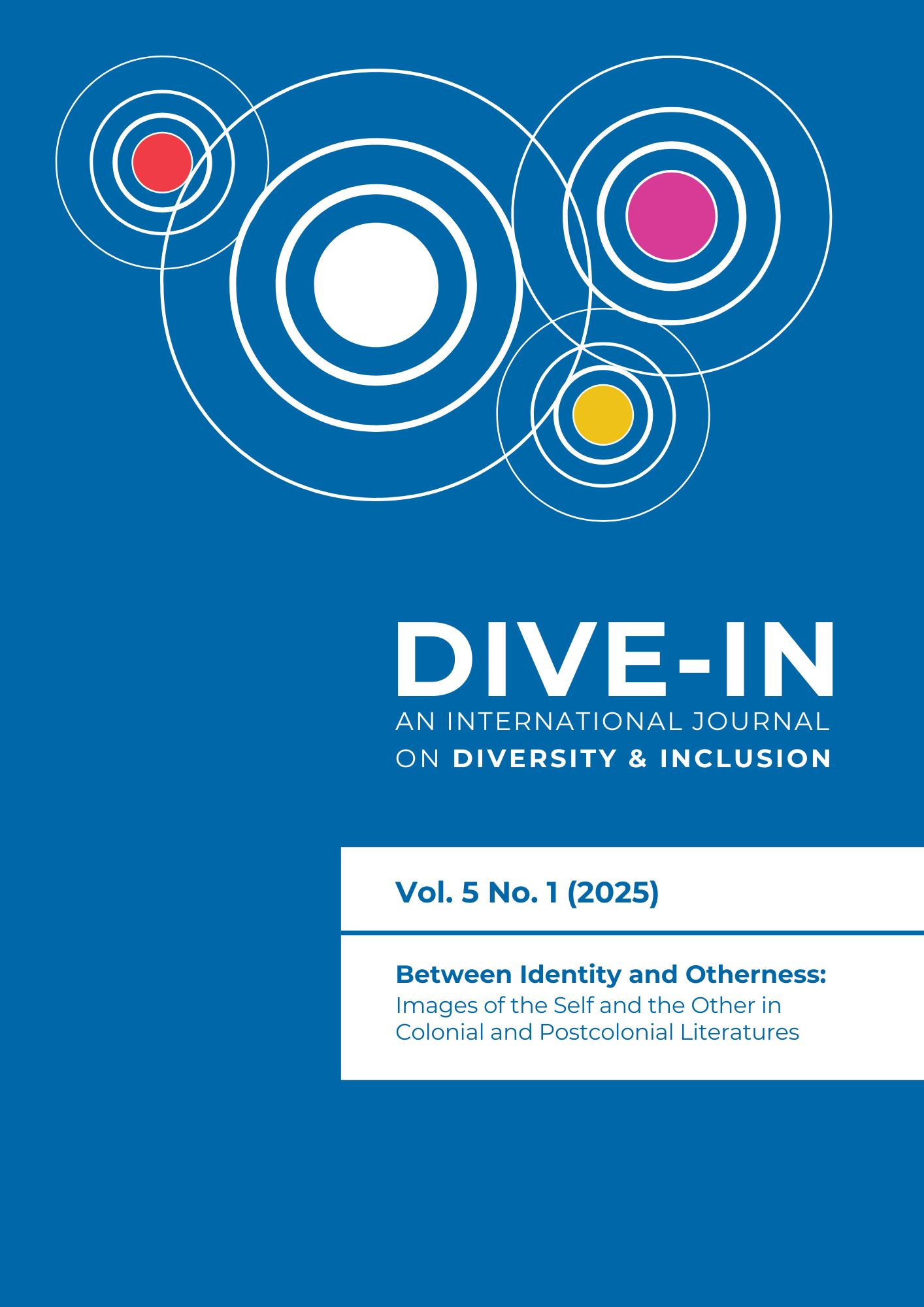Wir Geretteten, ihr Völker: Un’analisi linguistica su liriche scelte di Nelly Sachs
DOI:
https://doi.org/10.6092/issn.2785-3233/22036Keywords:
Self-representation, Systemic Functional Grammar, agency analysis, transitivity analysisAbstract
The work of Nelly Sachs, Nobel Prize winner for Literature in 1966, is characterized by her aim to express the traumatic experiences of victims and survivors of the genocidal project of Nazism against the Jewish minority. The poet’s voice serves as a megaphone for the suffering of the entire Jewish community and sometimes engages in dialogue with the rest of humanity— both oppressors and bystanders. In this paper, I focus on the linguistic analysis of several works from Nelly Sachs’s early poetic corpus, employing a Critical Discourse Analysis (Van Leeuwen, 1996; Van Dijk, 2001). I used MAXQDA software for coding and analysis, conducting both qualitative and quantitative analyses of the categories of agency and transitivity according to the theory of Systemic Functional Grammar (Halliday 1967; Halliday & Matthiessen 1999, 2004), applied to the German language (cf. Uwe Helm Petersen 2012, 2013). My aim is to outline Sachs’s representation both of self and of the “Other”, to understand a possible evolution of it and of their mutual interactions. The identity of the poet is often expressed and fused in a collective “wir” to include with her the broader victimized Jewish community, as well as the “Other” represents the rest of humanity through the pronoun “ihr”.
References
Busch, Walter. 2009. “Che lingua parla il dolore? Le prime raccolte poetiche di Nelly Sachs”. In Anna Maria Carpi, Giuseppe Dolei & Lucia Perrone Capano (eds.), L’esperienza dell’esilio nel Novecento Tedesco, 63–74. Roma: Editoriale Artemide.
Conterno, Chiara. 2010. Metamorfosi nella fuga: la ricerca dell’Assoluto nella lirica di Nelly Sachs. Padova: Unipress.
Domin, Hilde. 1994. “Zerstöret nicht das Weltall der Worte”. In Marcel Reich-Ranicki (ed.), 1000 Deutsche Gedichte und ihre Interpretationen, VII, 75–78. Frankfurt am Main: Insel Verlag.
Friedenspreis des Deutschen Buchhandels. 1965. “Begründung der Jury" https://www.friedenspreis-des-deutschen-buchhandels.de/alle-preistraeger-seit-1950/1960-1969/nelly-sachs [ultimo accesso 31 dic 2024].
Fritsch-Vivié, Gabriele. 2008. “ ‘In deinem Mund dürstet eine Wüste’: Versuch über die dialogische Funktion der poetischen Sprache im Werk der Nelly Sachs”. In Ariane Huml (ed.), “Lichtersprache aus den Rissen”: Nelly Sachs - Werk und Wirkung, 77-90. Göttingen: Wallstein Verlag.
Halliday, Michael A.K. & Christian M.I.M. Matthiessen. 2004. An Introduction to Functional Grammar (3d ed.). London: Hodder Arnold.
Herweg, Nikola & Christoph Willmitzer (eds.). 2016. Briefwechsel Hilde Domin/Nelly Sachs. Marbach am Neckar: Deutsche Schillergesellschaft.
Holsting, Alexandra. 2013. “Joining the Ideational and the Interpersonal Metafunction: A Systemic Functional Description of Lexicogrammatical Resources for Projection in German”. In RASK – International journal of language and communication, 37 April, 39–87. Odense: University of Southern Denmark.
Jarosz-Sienkiewicz, Ewa. 2014. “Nelly Sachs und Paul Celan. Briefwechsel zwischen Schmerz und Trost”. In Germanica Wratislaviensia 139, 71–86.
Lerousseau, Andrée. 2024. “La lumière d’Israël chez Nelly Sachs”, in Tsafon: Revue d'études juives du Nord 87, 93–105. Lille: Université de Lille.
Machin, David & Andrea Mayr. (2012). How to do critical discourse analysis. A multimodal introduction. London: Sage Publications.
Ostmeier, Dorothee. 2008. “Probleme des Dialogischem im Werk von Nelly Sachs”. In Ariane Huml (ed.), “Lichtersprache aus den Rissen”: Nelly Sachs - Werk und Wirkung, 185–202. Göttingen: Wallstein Verlag.
Petersen, Uwe Helm. 2012. Systemic Functional Grammar of German: From Grammar to Discourse. New York: Continuum Publishing Corporation.
Petersen, Uwe Helm. 2013. “SFL-beskrivelse af tysk : nogle justeringer og præciseringer”. RASK – International journal of language and communication 38, Agosto. 335–368. Odense: University of Southern Denmark.
Sachs, Nelly. 1965. “Dankesrede” https://www.friedenspreis-des-deutschen-buchhandels.de/alle-preistraeger-seit-1950/1960-1969/nelly-sachs [ultimo accesso 31 dic 2024].
Sachs, Nelly. 1966. Nelly Sachs zu Ehren. Zum 75. Geburtstag am 10. Dezember 1966. Frankfurt am Main: Suhrkamp Verlag.
Sachs, Nelly. 1984. Briefe der Nelly Sachs. Eds. Ruth Dinesen & Helmut Müssener. Frankfurt am Main: Suhrkamp Verlag.
Sachs, Nelly. 2010. Gedichte 1940-50. Band I. Ed. Matthias Weichelt: Nelly Sachs, Werke. Kommentierte Ausgabe in vier Bänden, Suhrkamp Verlag, Berlin.
The Nobel Prize. 1966. “Nobel Prize in Literature 1966” https://www.nobelprize.org/prizes/lists/all-nobel-prizes-in-literature/1969-1960/ [ultimo accesso 31 dic 2024].
Van Dijk, Teun Adrianus 2001. “Critical discourse analysis”. In Deborah Tannen, Deborah Schiffrin, & Heidi Hamilton (eds.), Handbook of discourse analysis, 352–371. Oxford: Blackwell.
Van Leeuwen, Theo. 1996. “The representations of social actors”. In Carmen Rosa Caldas Coulthard & Malcolm Coulthard (eds.), Texts and practices: Readings in critical discourse analysis, 32–70. London: Routledge.
Weber, Werner. 1965. “Laudatio an Nelly Sachs”. Friedenspreis des Deutschen Buchhandels https://www.friedenspreis-des-deutschen-buchhandels.de/alle-preistraeger-seit-1950/1960-1969/nelly-sachs [ultimo accesso 31 dic 2024].
Downloads
Published
How to Cite
Issue
Section
License
Copyright (c) 2025 Celeste Catino Geromella

This work is licensed under a Creative Commons Attribution 4.0 International License.





